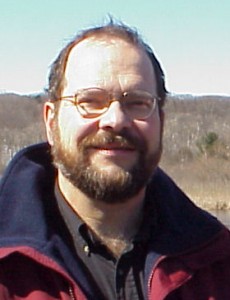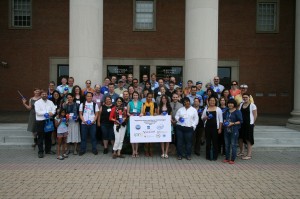 The following entry is a special contribution to this blog from John L. King, the W.W. Bishop Professor in the School of Information at the University of Michigan. John was a council member of the Computing Community Consortium (CCC) from 2007 – 2010 and on the Board of the Computing Research Association (CRA) from 2003 – 2005.
The following entry is a special contribution to this blog from John L. King, the W.W. Bishop Professor in the School of Information at the University of Michigan. John was a council member of the Computing Community Consortium (CCC) from 2007 – 2010 and on the Board of the Computing Research Association (CRA) from 2003 – 2005.
The Digital Societies and Social Technologies (DSST) 2013 Summer Institute took place at the University of Maryland College Park, College of Information Studies from July 28-August 1. It built on traditions established by the CSST (Consortium for the Science of Sociotechnical Systems) summer institutes and the Summer Social Webshops. The focus was on bridging the “social” and the “technical” to address critical problems including disaster response, disease prevention, cybersecurity, and new product development.
DSST brought together doctoral students, postdoctoral fellows, and junior and senior researchers from Computer Science, Human-Computer Interaction, Social Informatics, Information Science, Sociology, Psychology, Anthropology, Science and Technology Studies, and other fields. It helped bridge gaps across research domains, offering presentations and workshops on methods from different fields and opportunities for collaborative brainstorming. Participants recognized similarities and overcame differences by breaking into small groups, mapping research spaces, and focusing on how different research approaches fit into research agendas that encompass multiple research communities.
Interdisciplinarity dominated the discussions, often showing up as differences in vocabulary. Researchers from different fields view problems through different lenses. They publish and present in different outlets. They rely on different paradigms. They often use the same words in different ways. For example:
Theory: Computer Scientists often use this term to refer to the study of Algorithms or Data Structures through mathematical analysis. In contrast, Social Scientists often see different theories serving different functions, using theories as heuristics to understand empirical data in ways that might and might not have strong predictive power.
Systems: Computer Scientists often see systems as software and hardware that perform specific functions. In contrast, Social Scientists often consider systems as not just software and hardware, but also people, practices, and ecosystems.
Ethnography: Those Computer Scientists who know about ethnography (not all do) often use this term to refer to research that involves observing and talking to users. Social Scientists trained as ethnographers sometimes consider this an over-simplification of a set of techniques that take years to master and that are easy to do poorly.
Social Computing: What is included or excluded by this term? Some equate it with large-scale social network analysis (e.g., “we looked at 3 million Tweets”), Crowdsourcing (e.g., “we leveraged the crowd to do citizen science”). Some think it means mediated communication supporting one-to-one or small-group relationships (e.g., videochat, Share Table, haptic connectedness devices, small online support groups, etc.). Terminology has not yet been standardized even within fields, much less across fields. The concept of a social computing feature illustrates this. Does a feature simply enable a system to post content to existing social network sites (e.g., Facebook)? Or must a feature enable a system to leverage social connections, encourage coproduction, and help people achieve mutual understanding? Such differences will take time to sort out.
Big Data: Many Computer Scientists consider the “big” in Big Data to be mostly about the size of the data set, a “difference in degree” concern that argues for technologies such as Hadoop for parallelized processing and storage at large scale. In contrast, many Social Scientists consider the “big” to mean a “difference in kind” requiring new methods and strategies (e.g., abandoning techniques useful for handling views of 10-20 people and adoption or creation of techniques useful for handling views of thousands of people). Again, it will take time to sort this out.
In all, DSST 2013 was a great opportunity to cross boundaries between disciplines and discuss issues of common interest to different research communities. This was true despite the evident vocabulary challenges.
DSST 2013 was organized by Brian Butler, Susan Winter, and Diane Travis of the University of Maryland. This post was written by DSST participants Dorothy Carter of Georgia Institute of Technology, Inchan Kim of the University of Oklahoma, and Svetlana Yarosh of AT&T Research Labs











Trackbacks /
Pingbacks